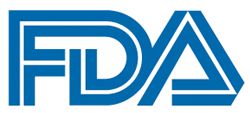Dasatinib Receives FDA Approval for Pediatric Ph+ ALL
Dasatinib (Sprycel) tablets has been approved by the FDA to be used in combination with chemotherapy for the treatment of pediatric patients ≥1 year of age with newly diagnosed Philadelphia chromosome-positive acute lymphoblastic leukemia.<br />

Dasatinib (Sprycel) tablets has been approved by the FDA to be used in combination with chemotherapy for the treatment of pediatric patients ≥1 year of age with newly diagnosed Philadelphia chromosome-positive (Ph+) acute lymphoblastic leukemia (ALL).
The FDA based the approval decision on findings from a single cohort of the phase II CA180-372 trial (NCT01460160). Results showed a 3-year event-free survival (EFS) binary rate of 64.1% (95% CI, 52.4%-74.7%) in 78 pediatric patients with newly diagnosed B-cell precursor Ph+ ALL.
“As treatments have advanced in recent years, we’ve seen improvements in outcomes for pediatric patients with Ph+ ALL overall, but there remains a need for additional options,” said Stephen Hunger, MD, lead study author, chief of the division of oncology and director of the Center for Childhood Cancer Research at Children’s Hospital of Philadelphia, in a press release. “The phase II CA180-372 trial was particularly informative because it was designed to limit the use of cranial irradiation and stem cell transplant. In the study, Sprycel plus chemotherapy demonstrated a three-year event-free survival benefit. These results show that Sprycel is an effective medication for physicians to consider for children and adolescents with Ph+ ALL.”
The phase II study included 106 patients aged <18 years old were treated with continuous daily dasatinib starting at day 15 of induction chemotherapy. The 78 patients evaluated for efficacy in cohort 1 received dasatinib at 60 mg/m2daily for up to 2 years in combination with a backbone chemotherapy regimen of the AIEOP-BFM ALL 2000 multi-agent chemotherapy protocol. Additionally, patients were assigned to receive stem cell transplant based on minimal residual disease if they were considered high-risk.
A complete remission was achieved by all treated patients. At day 78 (end of first block of treatment), patients with minimal residual disease (MRD) ≥0.05% were eligible for hematopoietic stem cell transplantation (HSCT) in first remission, as were patients with MRD 0.005% to 0.05% who were still MRD-positive following an additional 3 high-risk chemotherapy blocks. Nineteen of the 106 treated patients met these criteria, with 14.2% (n = 15), being treated with HSCT. The other 91 patients received 2 years of treatment with dasatinib combined with chemotherapy.
Among the 81 patients evaluated for safety, grade 5 adverse events (AEs) occurred in 3 patients (4%), and 8 patients (10%) experienced AEs leading to treatment discontinuation, including fungal sepsis, hepatotoxicity of graft-versus-host disease, thrombocytopenia, CMV infection, pneumonia, nausea, enteritis and drug hypersensitivity. The most common serious AEs occurring in ≥10% of patients were pyrexia, febrile neutropenia, mucositis, diarrhea, sepsis, hypotension, infections, hypersensitivity, vomiting, renal insufficiency, abdominal pain and musculoskeletal pain.
“We recognize the urgency around developing and delivering therapies for children and young adults living with cancer, and today’s approval is an important example of our commitment to pediatric oncology,” said Jeffrey Jackson, PhD, development lead, hematology, Bristol-Myers Squibb, the manufacturer of dasatinib, in a press release. “Building on our previous indication for children with Ph+ chronic myeloid leukemia in chronic phase, we’re pleased to bring Sprycel tablets to a second type of pediatric leukemia. This approval will give physicians another treatment option to offer appropriate pediatric patients with Ph+ ALL.”
The FDA initially approved dasatinib in November 2017 for the treatment of pediatric patients with Ph+ chronic myeloid leukemia in chronic phase.
ALL represents 20% of all cancers diagnosed in patients aged less than 20 years, or more than 3000 new cases annually. Three percent of children who have ALL have Ph+ disease.
Reference:
Bristol-Myers Squibb’s Sprycel® (dasatinib) Tablets Now Approved in Combination with Chemotherapy in Certain Pediatric Patients with Philadelphia Chromosome-Positive Acute Lymphoblastic Leukemia. Bristol-Myers Squibb. Published January 2, 2019. https://bit.ly/2F230c5?rel=0" . Accessed January 2, 2019.